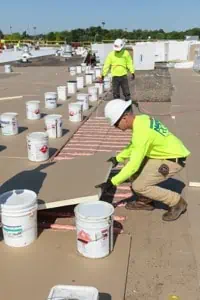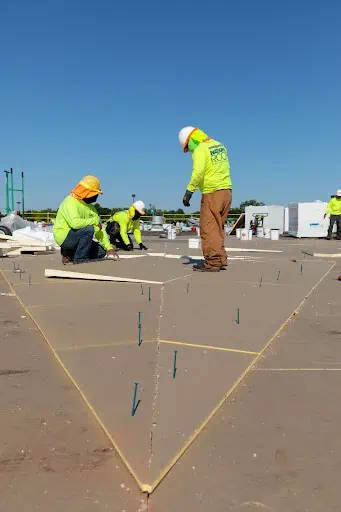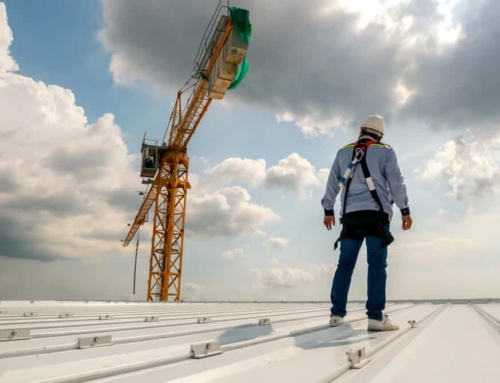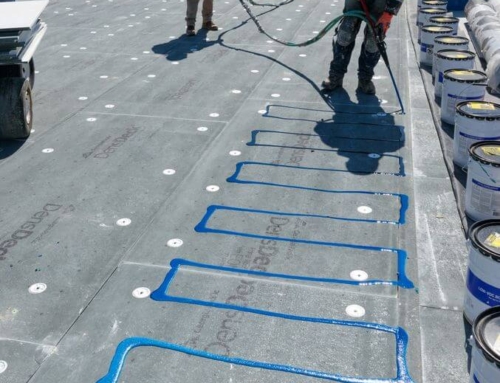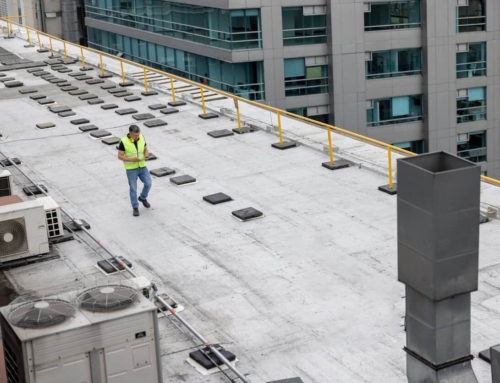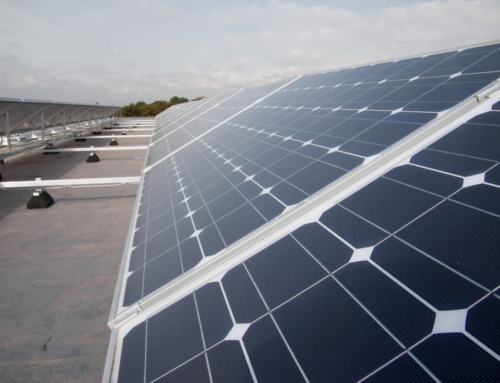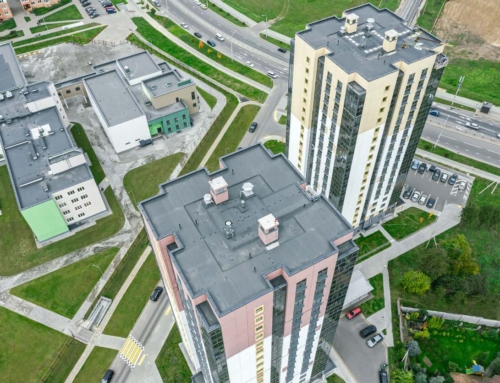No matter the type, commercial roofing systems share the same primary goal – protecting property. While the roofing membrane is critical for protection from the elements, the commercial roofing insulation protects you from spending too much on utilities. Here’s how durable and fire-resistant roof insulations can help protect property and increase a building’s energy efficiency.
Contents
What You Need to Know About Commercial Roof Insulation
Commercial roof insulation is typically installed under the roof membrane to create a thermal barrier between the building and the outside elements. Insulation on commercial buildings is critical as it can help reduce excessive heating and cooling costs. But the insulation’s durability and fire resistance also play an essential role in protecting property.
Let’s discuss the types of commercial roof insulation and how performance is measured for this product.
Types of Commercial Roof Insulation to Increase Energy Efficiency
There are many different types of roof insulation materials, ranging from rigid boards to liquid-applied foam to insulating concrete. Here are some of the most widely used types of insulation for commercial buildings to increase energy efficiency:
- Polyisocyanurate (most common in North America)
- Extruded Polystyrene
- Expanded Polystyrene
- Mineral Wool
- Fiberglass
- Spray Polyurethane Foam
A skilled roofing contractor will recommend the best commercial roof insulation for your new construction or reroof project based on the roof membrane, local climate, and building use. Tapered insulation can also be installed to provide slope and improve drainage on the roof. Some of these insulations can help reduce sound transmission, as well.
Commercial Insulation: Thermal Resistance
Commercial building roof insulations reduce heating costs in the winter and cooling costs in the summer. The more you invest in maintaining your building’s temperature, the more you need to consider the long-term consequences of installing the right roof insulation and membrane.
R-value measures how well a layer of insulation resists the flow of heat. It’s worth noting that the R-value of a commercial roof system considers all of the system’s layers – not just the insulation.
The higher the R-value – the more effective the material. Polyisocyanurate insulation, also called “polyiso” or “iso” is a rigid foam insulation that is compatible with most decks and roofing membranes and typically has the highest R-value/inch, making it an excellent choice for most roofing assemblies.
Commercial Insulation: Durability
Of course, your roof membrane will serve as a watertight layer and first line of defense against impact resistance. But under that layer is the insulation, which must also withstand the impact of weather and foot traffic. For greater durability and protection against rooftop traffic and hail, many specifiers select a high-density cover board between the insulation and the membrane.
Commercial Insulation: Fire Resistance
Roofing materials can prevent or reduce the spread of fires – and limit damage from a fire. It’s usually recommended that the roofing system has a UL Class A fire-resistance rating or FM Class 1 rating.
Commercial Insulation: Moisture Resistance
If water makes its way to your roof insulation products, the material becomes less effective. Water-damaged roof insulation can also cause wind uplift, which occurs when the pressure below the roof is greater than the pressure above it.
Proper installation and roof design are critical if you wish to achieve superior performance from your roof.
High-Performance Roofing Systems Offer Long-Term Stability
There’s so much to consider when choosing a commercial roofing system. If you expect long-term performance, consider the roofing material and its insulative properties, the installation, and the product warranties.
For a commercial roofing partner you can trust, contact Nations Roof. No matter where you are in your roofing cycle, we will advise you on how to extend the life of this crucial building system – and help you prevent leaks and lower energy costs.
If you have questions about commercial roof insulation or any other components of roofing systems, contact Nations Roof.
Key Takeaways
- There are several commercial roof insulation types. Your contractor will explain your insulation options based on your roofing system and other factors.
- Your commercial roofing contractor will help you choose insulation with the proper R-value. Needed durability and fire resistance are also considered.
- No matter the type of system or insulation you choose, installation and maintenance are critical factors in a long-lasting roof.

